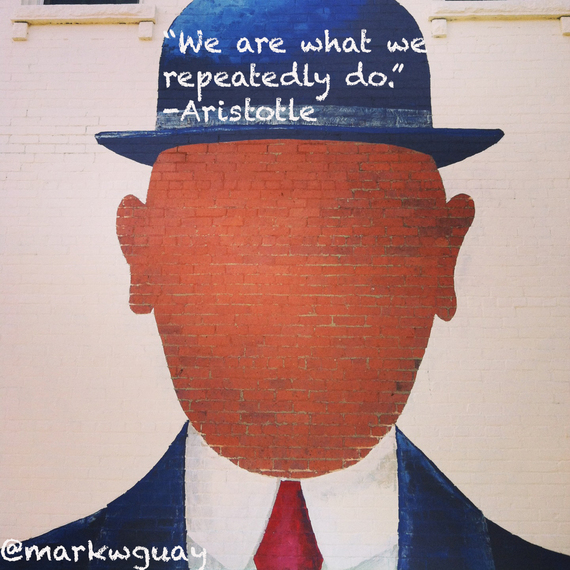When hanging out the other day with my friends Pavlov and Aristotle, they got me thinking about what behaviors students regularly repeat through the years of schooling. They mentioned it might have something to do with those struggling with unemployment.
Pavlov mentioned that animals have involuntary responses to external stimuli if a behavior is repeated enough.
As animals, we humans too build habits based on our behavior. We're not that much different from Pavlov's dog. Pavlov learned that if he rang a bell every time he fed his dog, the dog would salivate. After a certain time, if Pavlov continued to ring the bell even if he offered no food, the dog would still salivate. The body and mind involuntarily learned behavior.
The same goes for us humans. After years of following a bell system in school, just watch a group of students before the class bell rings. They get antsy. If the bell system fell one day, students would begin to stir around the same time the bell typically rings. And after years of being asked questions by a power figure or filling in the bubble on a multiple choice test, students have learned there is only one way to think and one correct answer.
Aristotle replied to Pavlov, "We are what we repeatedly do."
And the one thing that students repeatedly don't do very often is communicate effectively with peers. Socrates, the inventor of the discussion-based Socratic circle, would be pissed.
Here's the one thing Dr. Nystrand and others found out: about 94 percent of classroom discussions in an eighth- and ninth-grade classroom were completely monologic, meaning the teacher spoke practically all the time. The rest of the discussions were primarily structured as teacher asks question then student answers.
So, what are the behaviors here and what are the repercussions after 13 or so years of repeating this?
1. Students behaviorally learn to listen for information from a superior source and then only respond to a superior -- typically in a "there's only one answer to the question" kind of way. This is vey similar to the behavior learned from a multiple choice style test where there is only one correct answer.
2. The current system does not allow students to get enough opportunities to grow their discussion engine beyond #thoughtsduringschool.
Does this learned behavior lead to a waiting for superior syndrome where students graduate from high school in a lackluster autonomous state and look to a superior for guidance, like a boss assigning a job?
After graduation, the boss replaces the teacher and when unemployment reaches an all-time high in an economic crisis, people are left saying there are no jobs. This leaves two options:
1. Go on unemployment.
2. Create your own job.
The latter presents a series of roadblocks one cannot even fathom until he takes the leap to be entrepreneurial. For one, working alone rarely works out and building a team out of peers (many times a motivational necessity) requires a network and the know-how to communicate effectively, ask the right questions and organize a team to create something remarkable.
Of course, this is not the only reason many people are unemployed, but perhaps this presents one angle rarely looked at.
So, if there's no job, for many there's only unemployment. When you're not taught to think outside the multiple choice answers, it's tough to think outside bubbling in a response (tweet this!).
Let's dig deep to explore the future.
The Structure Will Change
The brick-and-mortar school system has a new operating system (OS) -- options which include blended-learning environments, online schooling and flipped classrooms all over the world.
For anyone who has ever been a building principal or teacher, it makes perfect sense why you wouldn't want students talking all the time in the traditional school. Building a Socratic-style classroom under the restriction of a mandatory school system with cramped rooms, hormones and uncomfortable seating presents a series of reasons why seasoned teachers may turn to more monologic class discussions. Who willingly brings on a migraine?
Now, students can engage in Socratic dialogue through the safety of web forums, the flipped classroom and blended-learning environments where students learn online then meet in person for group work and Socratic dialogue.
Take a look around at adult learning today and you'll see Socratic discussions popping up through local meet-ups, cooperative working spaces and even the blended-learning-style community colleges.
So, what could we have more students talking about?
What do you think? What do students repeatedly do and what behaviors have we learned?

